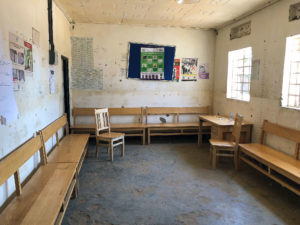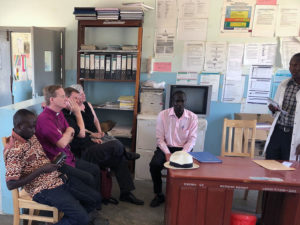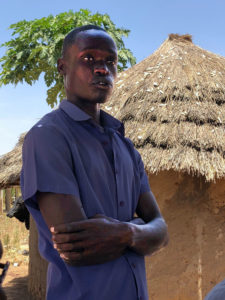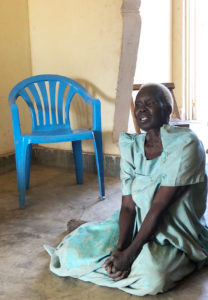This is one of the most beautiful sights you will ever see.
It is the waiting room of the clinic in Kapujan. Before last year it would have been full, mainly of mothers and small children, afraid and sick with malaria. During the worst periods, the staff would sometimes have 80 cases a day.
The reason is the Katakwi Rotary Malaria Project (KRMP). Pilgrim is the implementing partner for this three-year study. Applying a protocol we developed in 2008, the project covers three sub-counties in Katakwi District serving a total of about 38,000 people. Today we visit two of the sub-counties, Toroma and Kapujan, and the results are astonishing. The picture speaks for itself.
It is hard to exaggerate the extent to which malaria affects daily life in Uganda. Over 100,000 people a year die in malaria-related deaths, mostly pregnant women and children under five. When a child is sick, at least one parent has to stay home instead of going to work, which, coupled with the effects of adult cases, means that up to a third of the country’s workforce can be out of commission on any given day.
But this protocol, a combination of indoor residual spraying (IRS) and mass drug administration (MDA) has virtually eliminated malaria for the target population, and could be the key to the near-eradication of the parasite in sub-Saharan Africa.
When we ran a trial project in Katakwi several years ago, we saw the same success for a total of 177,000 people. But there were sufficient flaws in our methodology and data that it took years to persuade the major players in international public health that we had something really revolutionary. After winning the attention of the President’s Malaria Initiative and the global fund, we were finally able to secure funding for this three-year study through the generosity of the Bill and Melinda Gates Foundation.
The day begins with a visit to the offices of the local district chairman in Katakwi. We are warmly received. Thanks to Pilgrim Africa’s careful work building relationships in this region over many years, we have the enthusiastic support of politicians and churches. This is extremely important, since the project depends entirely on grassroots participation: methodically spraying every hut, making sure every person receives a drug that both kills the parasite and provides protection against new infection, encouraging the use of bed nets and the elimination of standing water in villages and compounds.
After our courtesy call, we visit the two clinics. We sit with the staff and hear the same story with a few variations. The wards used to be full. Now they are empty. Nurses and doctors can turn their attention to other complaints that are serious but not yet life-threatening, such as respiratory infections or diarrhea. They are able to intervene early, and since malaria weakens resistance to other diseases, the overall general health of the region has improved. What malaria cases they do see involve people who elected not to participate in the protocol or people who got sick while visiting from outside the district. It is especially helpful to have Dr. Dan Hall with us, to hear his questions and see all of this through the eyes of a physician.
The hardest thing for people to understand has been why we can, for the moment, help only the people within the three sub-counties, when we were able to help nearly five times that number a few years ago. But Pilgrim staff have been on a relentless information campaign since before the study was actually launched, taking to the radio waves, patiently explaining over and over what a study is and why we have to be so restrictive.
After the clinics, we visit three households which have participated in the study. The stories are the same. For many of them, this is the first time in their lives that they have gone for months without anyone in their families being ill.
The third and last visit comes with a bonus. We are greeted by a very senior lady who has put on a party dress to receive us. As she sits on the floor to talk with us, a traditional posture for a host, her family brings in a large platter of roasted goat. Nothing is better than roasted goat!
By the time we leave it is late afternoon. We are heading to Usuk, to the remote village of Ajoatorum, where our friends Simon Peter and his family are gathering for a thanksgiving ceremony tomorrow.




